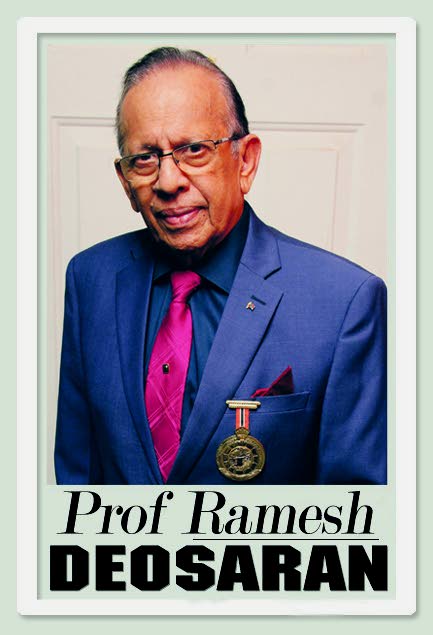Dangers of narcissism

When I taught social psychology at university, one of my special topics was leadership in its various forms and places. Good leadership is vital for our country and its institutions.
An intriguing question is whether some people are born leaders, while others acquire leadership traits through training or experience. Of course, a person may be an effective leader in one situation (eg sports club, village council, sales, etc) but not in other situations. Hence we have so many square pegs in round holes in politics.
We have had seven prime ministers so far – each one in some degree different in personality from the others. A very brief description: Dr Williams was scholarly and aloof, George Chambers was modest and focused, ANR Robinson was bright and introverted, Patrick Manning was innovative and temperate, Basdeo Panday was extroverted and liberal, Kamla Persad-Bissessar was phlegmatic and vulnerable, Dr Keith Rowley is mercurial and passionate.
Of course, there may be different views.
Briefly again, to illustrate how the situation helps shape personality, none was tolerant. Prime ministers cannot afford to be tolerant.
I was also intrigued by the emergence of political charisma. People are not born charismatic. In his treatise “The Routinisation of Charisma,” Max Weber said “charisma can only be awakened and tested: it cannot be learned or taught.” Charisma awakens from a leader’s relationship with the crowd. The collective mind formed in a crowd easily becomes vulnerable to persuasion.
In 1955, at Woodford Square, for example, Dr Williams showed how he was one of them, another black man, suffering the humiliation and indignity of British colonialism. He became their idol, their charismatic inspiration. They were his to lead.
The curse of leadership in any organisation arises when there is too much power that is unchecked. Leaders become helplessly corrupt and arrogant. The most dangerous is the narcissistic leader. Backed by research and observations, the American Psychiatric Association (APA) defines the narcissist as having an exaggeration of self-importance, an intense preoccupation with presumed success, difficulty in accepting criticism and often reacting with rage.
Psychologists Randy Larsen and David Buss state that narcissistic tendencies are characterised as “a sense of being special, feelings of self-entitlement (one that deserves admiration and attention without earning it) and a constant search for others who will serve as one’s private fan club.” Worse yet, the APA Diagnostic Manual notes that when narcissists are criticised, they “react aggressively, trying to achieve some respect by belittling their critics.” When things fail, the narcissist always says, “It’s not me, it’s you.”
The added danger, according to the APA manual, is that narcissists can become violent when their high self-importance gets shaken by being reprimanded at work or home. Interestingly, Larsen and Buss add that narcissists are exhibitionistic (always seeking to impress others), deceptive, grandiose (boasting) and tending to choose people who admire them. Their craving for attention and praise is insatiable. They love flatterers. And tactfully, they can stoop to conquer.
Last September, Guardian columnist Helen Drayton revealed a lot about “pathological narcissism.” Ms Drayton eloquently stated: “Narcissists are not difficult to identify. They have an exaggerated sense of importance and achievements, and can’t take criticism. They feel compelled to respond to every critic in epistle form, proclaiming how much support they have. They crave media attention – the cameras are essential to their egos. You wake up and there they are in the country’s face again.”
She added: “High on narcissists’ list is keeping score on enemies – people who disagree with them. They live in constant state of denial – denial of their incompetence. They are sick people who traumatise subordinates, making the work environment toxic. The cult-like behaviour by supporters keeps them in leadership positions to do untold harm to institutions and societies.” The narcissist can be a great danger to the well-being and performance of any organisation, institution or community.
While the media happily publish the buffonery and insults narcissists offer, the long-term danger cannot be ignored.
However, the greater danger, a tragic one really, lies in the fact that around the narcissistic leader, appointed or elected, are many who tolerate and even support the narcissist’s histrionics because they benefit from it. It suits their selfish purpose. All this is “pathological narcissism.” It is a danger to any institution or society.


Comments
"Dangers of narcissism"